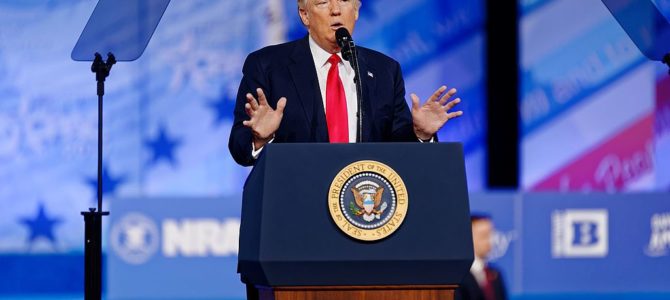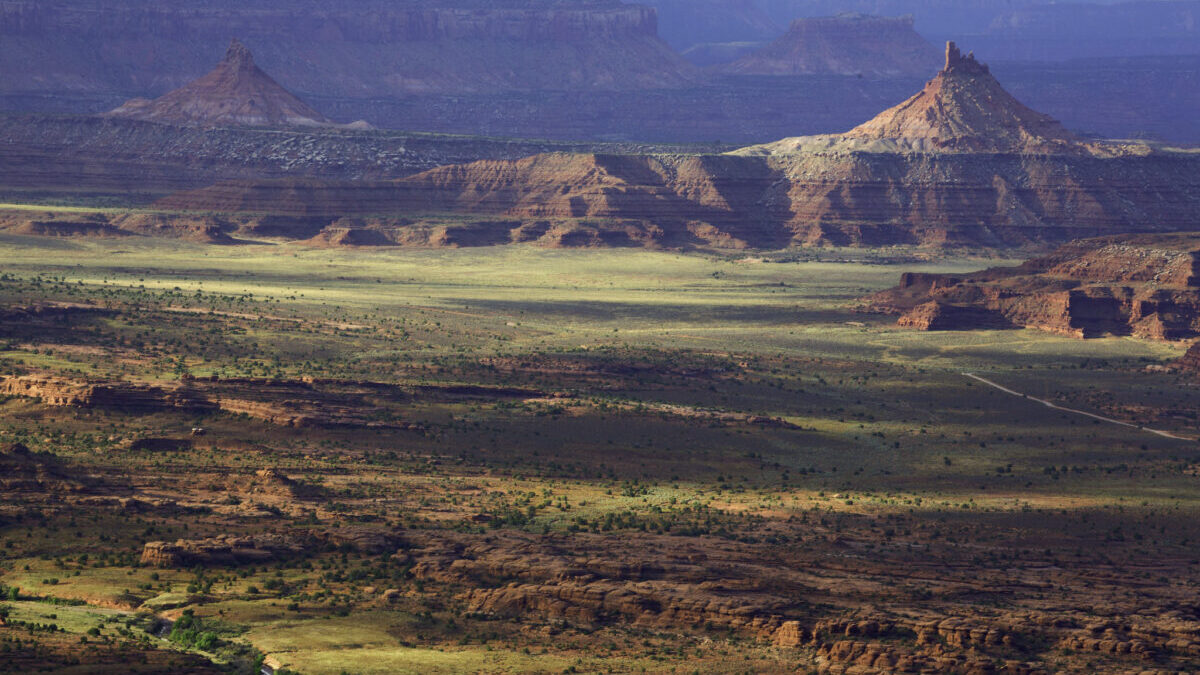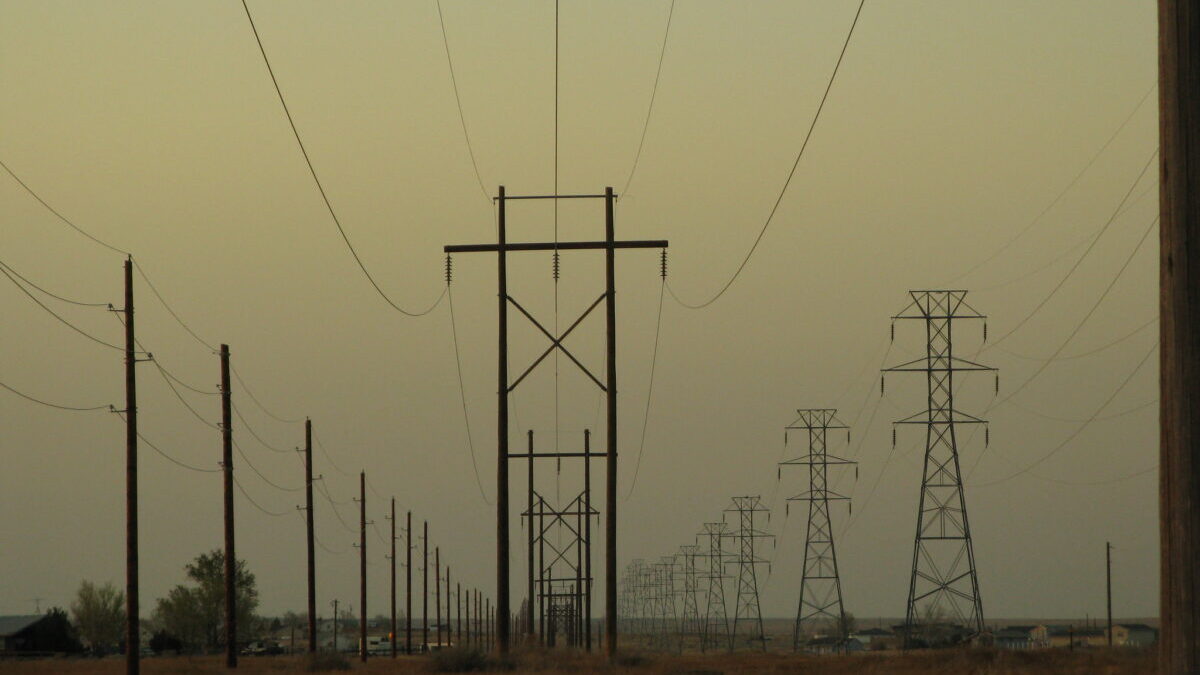
Here’s the thing about a legacy. When you build it with a phone and a pen, it’s pretty easy for another president to dismantle. Today, the Trump administration will make an announcement about whether it will withdraw from the Paris climate agreement President Obama signed in 2016. If Trump exits, it’s another example of Obama’s legacy living by the pen and dying by another man’s pen.
It remains unclear what decision the president will ultimately make, though it has been reported he’s leaning toward exiting the agreement. He should. He promised he would, and the Paris Agreement is exactly the kind of virtue-signaling, voluntary relinquishing of sovereignty the Trump candidacy was built on repudiating. Trump said in 2016, in his first energy policy speech, he’d “cancel” the deal.
“We’re going to cancel the Paris Climate Agreement and stop all payment of U.S. tax dollars to U.N. global warming programs,” Trump said.
Since President Trump took office, he has delighted in using his executive authority to undo the pen-wielding of his predecessor. Exiting the Paris climate agreement, which the UN and international bureaucrats say is meant to curb climate change through emissions cuts, may be slightly more complicated than some of this undoing, but not much.
Why? Because Obama avoided taking the agreement, which critics say amounts to a treaty, to the U.S. Senate for approval. There, it would likely have failed with a GOP majority skeptical of climate change, international control, and the impact of the agreement on energy costs and job creation. The Kyoto Protocol died a similar death in 1997 after President Clinton signed it. So Obama’s administration negotiated, signed, and openly advertised the agreement as one that is not legally binding, but “politically binding.”
Obama and negotiators attempted to walk the line between agreement and treaty by making some of the deal’s aspects legally binding but others not. For instance, Obama called transparency of climate data and reporting requirements legally binding, but not the goals for emissions reductions.
But “politically binding” isn’t that binding if you’ve garnered no political buy-in. The American system offers several ways to do so with international agreements, and the supermajority threshold of a treaty agreement assures broad political backing. Another way would be to run on a promise to sign a giant, international climate agreement that would commit the United States for decades to significantly reduced emissions and payments to other countries. Obama did neither.
Trump, on the other hand, ran on a promise to withdraw from the deal. To the extent the deal was “politically binding” on Obama, it’s close to the opposite for Trump. Trump’s daughter Ivanka, her husband Jared Kushner, and Secretary of State Rex Tillerson have reportedly been urging him to remain in the agreement since he assumed office, backed by a chorus of energy-industry lobbyists who support the deal.
It is fascinating to watch climate activists align with these interests, suddenly sure their motives are pure as the driven snow. The truth is corporate energy interests are divided on the deal, depending on what they stand to gain. The American Petroleum Institute has not taken a position. Companies that are big natural gas producers, which is favored in this deal, are backers, while traditional coal companies are not. Other corporate interests are looking to get their hands on the billions in subsidies and incentives pledged in this deal to develop green energy sources.
The United States would be expected to contribute to a $1 billion-a-year “climate finance” fund as part of the deal, which would go to developing countries to ameliorate the toll the deal would take on their economic development. Some of it would also go to oil-rich countries to wean them off their economic lifeblood. Luckily, the UN has never been known to pour billions into the coffers of dictators under the auspices of helping developing and oil-rich countries, at the expense of the poorest in those countries.
There’s one way Trump could solidify his mandate on this if he wanted.
Trump should just submit the Paris accords to the Senate as a treaty.
— John Podhoretz (@jpodhoretz) May 31, 2017
How hard would the likes of Democratic Senate incumbents in Montana, Missouri, North Dakota, West Virginia, and Indiana beg not to take a vote on this before reelection fights in 2018? Their base will want them to vote for it, but their Trump-won states won’t. Make them take a stand on it, vote to tick off their states or to tick off their liberal base, and let the primarying commence. The dirty little secret is it’s not just Republicans who don’t want to their names on legally binding international deals that yield our control over our own power at the expense of a bunch of middle-class Americans via their electric bills.
There’s a reason American voters aren’t convinced on the merits of a deal like this. Canada did its duty and signed onto the Kyoto Protocols, but discovered that hitting arbitrary emissions reductions was incompatible with a healthy economy, so it exited the deal in 2011 to avoid billions in fines for the sin of success and prosperity. Barring that move, Trump can exit the deal on his own authority, though some say the process would take as much as four years to complete, according to the deal’s text.
A Washington Post report explained the pertinent article in 2016:
At that point, to get out of it again, one turns to its Article 28, which states that, ‘At any time after three years from the date on which this Agreement has entered into force for a Party, that Party may withdraw from this Agreement.’ It adds, though, that the withdrawal itself doesn’t take effect until ‘expiry of one year from the date of receipt by the Depositary of the notification of withdrawal.’
But again, because the deal is “politically binding,” and there aren’t legal enforcement mechanisms, Trump could presumably just not do anything the deal purports to require during that period and would face mostly the finger-wagging of EU leaders and “naming and shaming.” Critics of the deal have also argued not exiting it formally leaves the United States open to the expensive sue-and-settle tactics of litigious climate activists.
“The premise of the Paris agreement is one of political pledges and political accountability,” climate activist and CEO of Climate Advisers Nigel Purvis told the Post in 2016. “And the consequence for not complying is international criticism. And the need to explain oneself.” I’ll leave you to guess how much that might bother President Trump.









